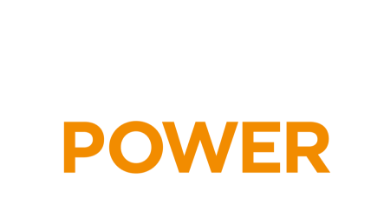Cutting edge R&D to fuel continuous Forsee Power battery system innovation
Forsee Power has been a pioneer in smart battery systems since its creation in 2011. The Group was the first to equip electric buses in Europe and North America in 2013 and to offer an opportunity charging solution in London in 2014.
A pioneering cell-to-pack manufacturer since 2018, we have launched the world’s thinnest modular battery system with the ZEN SLIM range, ZEN PLUS for high-energy packs for 650 V and 800 V applications in a single format, and fast charging systems for catenary-free trams.
Innovation is part of our DNA, and our passionate teams in Europe and Asia work together every day to improve the performance and competitiveness of our products, reduce their carbon footprint and innovate the intelligent battery systems and associated solutions of tomorrow.
Our R&D policy
Based on more than 25 years of battery expertise, Forsee Power’s global R&D team is dedicated to innovating efficient, competitive, and sustainable smart battery systems and related end-to-end solutions for targeted electromobility market segments, helping our customers and cities reduce their carbon footprint.
We do this by improving performance and safety, anticipating customer needs, and integrating the latest technologies and material, with a cost-effective and differentiating approach.
In our R&D approach, we consider the whole life cycle of the battery system, including its first life in vehicles, a possible second life into stationary systems and finally the end of life. Customer applications, maintainability, repairability, recyclability, as well as robust manufacturing and supply are key factors in the product development process.
Indeed, the transition to electromobility only makes sense if the battery systems are sustainable; sustainability is a key driver in our R&D efforts.
Eco-design is at the heart of product innovation, setting targets for longer life cycles, better performance, higher safety standards, less energy consumption in the manufacturing process and material with a lower carbon footprint.
This is made possible through a deep and broad combination of engineering expertise at every stage of the process, including electrochemistry and cells testing, advanced modeling and simulations, real-time electronics, embedded software, mechanical and thermal design, and extensive testing.
Collaboration with in projects and programmes, industrialisation and supply chain teams is also a key success factor in our approach.
Major trends and key drivers
Sustainability
Reduce the carbon footprint and integrate more recycled material, better repairability, recyclability
Solution-focus
Go beyond the embedded battery packs and systems, optimize first life service, anticipate second life, etc.
Digitalization & AI
Native integration of connectivity – IoT, cybersecurity, data analytics
System Safety & Reliability
ISO 26262 compliance; robust system architectures, in-depth design-FMEAs, non-functional safety, product design robustness
Balanced innovation portfolio
Increase focus on upstream studies and generic developments
Collaboration
Leverage Forsee Power’s multi-site presence and vast areas of expertise in R&D functions and market segments knowledge
Platforming & Modularity
Streamline design diversity (product & process), leverage generic building blocks
Innovation stream
6
PHASES FROM TECHNOLOGY TO FIELD
1. Upstream innovation studies
2. New generic development
3. Offer and preliminary project study
4. Application project development
5. Technical support for series production
6. Continuous engineering
Multidisciplinary expertise
10
AREAS OF EXPERTISE
1. Development of turnkey solutions and systems
2. Advanced modelling, simulations and optimisation
3. Systems / product development
4. Embedded software development
5. Hardware engineering (analogue and digital)
6. Power electronics engineering
7. Electro-thermo-mechanical engineering
8. Mock-ups & prototyping
9. Test facilities and methods
10. Systems and product testing
International organization
3
R&D CENTERS
Located in Paris, Lyon (France) and Zhongshan (China), our 3 R&D centres include 4 test laboratories.
They help to develop new technologies and enhance the skills of our employees, working with a network of experts through academic and B2B partnerships.
Technologies
6
FAMILIES IN A COMPREHENSIVE TECHNOLOGY PORTFOLIO
1. Solutions & connectivity
2. Complex embedded systems
3. Simulation models and building blocks
4. Product development
5. Next-generation battery modules
6. Technology building blocks
We are constantly evaluating and improving our current technologies – including the BMS platform and DC/DC conversion expertise – and innovating to strengthen our global technology portfolio to maintain a leadership position.
Collaborative teams
160+
R&D TALENTS
The Group’s R&D teams bring together more than 160 engineers and technicians covering all the knowledge and know-how required for the innovation, design, development, production start-up, monitoring and maintenance of products and systems in service.
We are moving towards the implementation of agile development principles and methods, to better understand changing needs during the development phases, and to promote greater efficiency and autonomy for multi-skilled project teams.
Eco-design focus
4
ECODESIGN TOOLS
Our R&D team works closely with all functions to ensure a reduced environmental footprint of our products.
We use recognised eco-design tools:
1. The 6 ERs
2. A checklist
3. The carbon footprint
4. The recycling rate
